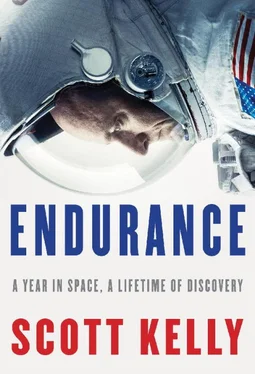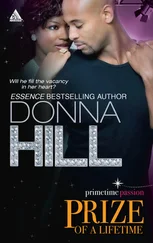We may have lived up the hill now, but in socioeconomic terms we still belonged down the hill, sort of like the Beverly Hillbillies we saw on television. We stuck out among the wealthier Jewish families who lived nearby. Mark and I used to get into scrapes with neighbor kids—snowball fights, rock fights, apple fights with the crabapples that fell off the trees. We threw them at adult neighbors too, and we discovered that the grown man next door had a pretty good arm when he threw them back. We were like juvenile delinquents who never got arrested, probably because we were the children of a cop.
In the summertime, my father and his cop buddies would have cookouts in a nearby park, and those days were always fun—at least, at first—as we ate hot dogs and played softball. But as the day went on and the empty bottles and cans piled up, you’d have twenty drunk cops getting into arguments, things turning nasty. My father would finally load us into the car, blind drunk. As he went careening down Pleasant Valley Way, swerving into the opposite lane, we’d be screaming at him not to crash the car.
Sometimes my father’s cop friends would come over to our house for parties, and when they got drunk they would pull their guns out. Once, my father wanted to show off his new gun to his partner, so they decided to use a wooden sculpture I had just made in school as a target. I had brought it home and showed it proudly to my parents, and I was heartbroken that my dad would blast holes in my artwork.
My brother and I used to spend one night a week with our paternal grandparents, whom I loved, so my parents could go out drinking. My grandmother, Helen, was a heavy woman who was always impeccably dressed and always wore a wig. She was so pleased to see us every weekend, consistently kind and loving. She let us watch all the TV we wanted and sang us to sleep. My grandfather had served in the Navy in World War II on a destroyer in the Pacific, and it seemed odd to me that after having that kind of extraordinary experience he came home and worked in a mattress factory for the rest of his life. But he was content, had a great sense of humor, and he made a good life for himself and his family despite having only a sixth-grade education. In the mornings our grandparents always took us to the same diner for breakfast. After that we would spend hours visiting the flower gardens surrounding the historic mansions in northern New Jersey. That’s how I started to gain an appreciation for flowers, which would come back to me during my year in space, when I was tasked with bringing a crop of zinnias back from the brink of death. As much as I loved the breakfast and the flowers, I loved the routine, the way we did the same things in the same order, the stability of life with my grandparents.
When my brother and I were maybe nine or ten, my parents thought we didn’t need to be taken care of anymore when they went out drinking. They’d come home in the middle of the night, drunk and fighting. Kids sleep pretty hard, so the sound would first sneak into my dreams—the shouting and banging starting off low, maybe imaginary. But then it would gradually get louder, and Mark and I would eventually be lying awake, blinking in the dark, hearts pounding, listening to the yelling and screaming and things shattering against the walls.
Sometimes my mother would get scared enough of my father to leave the house with Mark and me. We’d run to my grandparents’ house several miles away. We’d bang on the door and wake them in the middle of the night, ask them to take us in. We always wound up going back to our house the next day. I remember coming home on those mornings, feeling like maybe it had all been a dream, but then seeing the things that had been broken scattered on the floor. Sometimes my brother and I would dedicate ourselves to fixing things—plates, furniture, knickknacks—in the hopes that fixing the damage would somehow put an end to the problem. It never did.
By the time I was a teenager, I had started trying to intervene in the violence between my parents. I never actually saw my father hit my mother, but I knew he did from the bruises I sometimes saw. I remember coming out to the living room one night in the middle of one of those fights and seeing my father, drunk, with his gun in his mouth, saying he was going to kill himself. My brother came out, too, and the two of us talked him into putting the gun down. It’s a wonder he survived those years.
Sometimes I think if my father hadn’t been a police officer, he would have been a criminal. He used to tell a story about when he was a young cop, answering a false alarm at a tire store in the middle of the night. His more experienced partner opened the trunk of the police car, took out a spare tire, and flung it through the window of the store. Then they loaded all the new tires they could fit into the police car, drove to his house, dumped the tires on the lawn, and went back to the store for another load. They called all the other police officers on duty to come over and get in on the looting. Eventually, they called the owner and told him, “Your tire store was robbed.”
In spite of my father’s behavior, I respected him, even idolized him in some ways when I was young. As bad as your parents may be at their worst, they are the only parents you’ll ever have. My dad was good-looking and charming when he was sober, and to me he seemed just like a TV detective, a larger-than-life figure hunting down bad guys and meting out justice. At the time, I didn’t realize he was probably just another blue-collar guy, getting through the week to get to the weekend, getting through the years to get to retirement. Some people seem to need conflict, thrive on it, and create conflict everywhere they go. I’ve heard it said that the children of conflict seekers are raised to have the emotional control their parents lack and then some—that fighters raise peacemakers.
My parents bought a series of boats, always in deplorable condition. We would take them out into the Atlantic Ocean, well past the horizon. We’d go out in any kind of weather, sometimes straight into a blinding fog. We had no navigation equipment other than a compass and no working radio. We’d fish all day, and when we felt it was time to come back in, we would try to follow the charter fishing boats back into the inlet. When we lost them, because those boats were invariably faster than ours, we’d head west until we saw land, then head up or down the coast until we saw something we recognized. Often, our crappy engine would break down and we would drift until we could flag down another boat, one with a radio, to call the Coast Guard to tow us in. Sometimes we would even be taking on water, in danger of sinking. Each time, we’d get home, congratulate ourselves for surviving, and head right back out again as soon as we could. It never occurred to us that we should stop taking these risks, because we always survived by our wits, always seemed to learn something from it.
—
WHEN I WAS about eleven, my mother decided to become a cop. She’d done catering or babysitting occasionally to make extra money throughout my childhood, and then she’d become a secretary, which was unrewarding and didn’t pay well. Now she wanted a career. The local police department had opened up the entrance exam to women, as many departments did in the 1970s. A lot of male police officers would have felt threatened by the thought of their wives trying to become officers as well. But not my father. To his credit, he encouraged her.
My mother studied for the civil service exam, which took time and effort. After she passed that, she had to take a physical fitness exam. She would have to meet all the same benchmarks as the men, and for a small woman, this was an enormous challenge. My father helped her set up an obstacle course in our backyard where she could practice every day. She ran around a set of cones carrying a toolbox filled with weights. She practiced dragging me a hundred feet across the backyard (in place of the dummy she would have to drag in the real test).
Читать дальше












